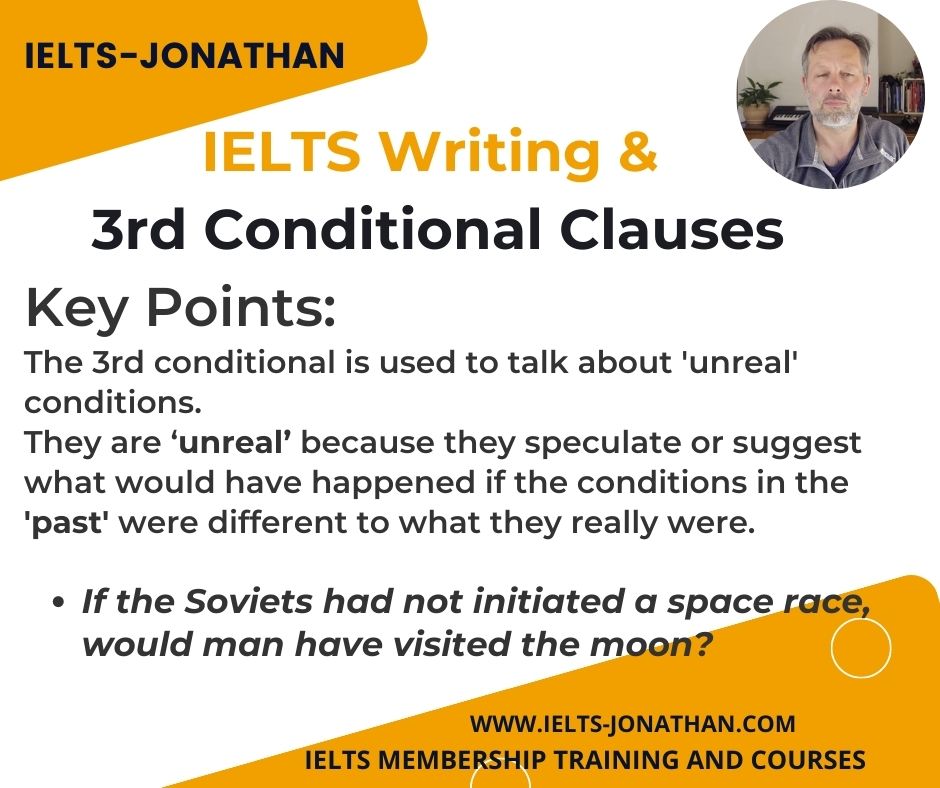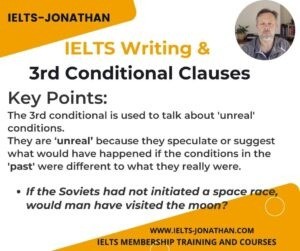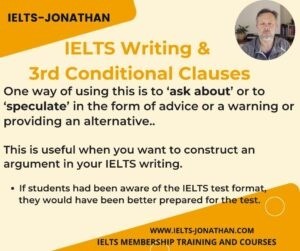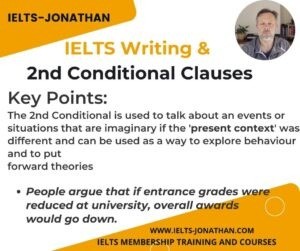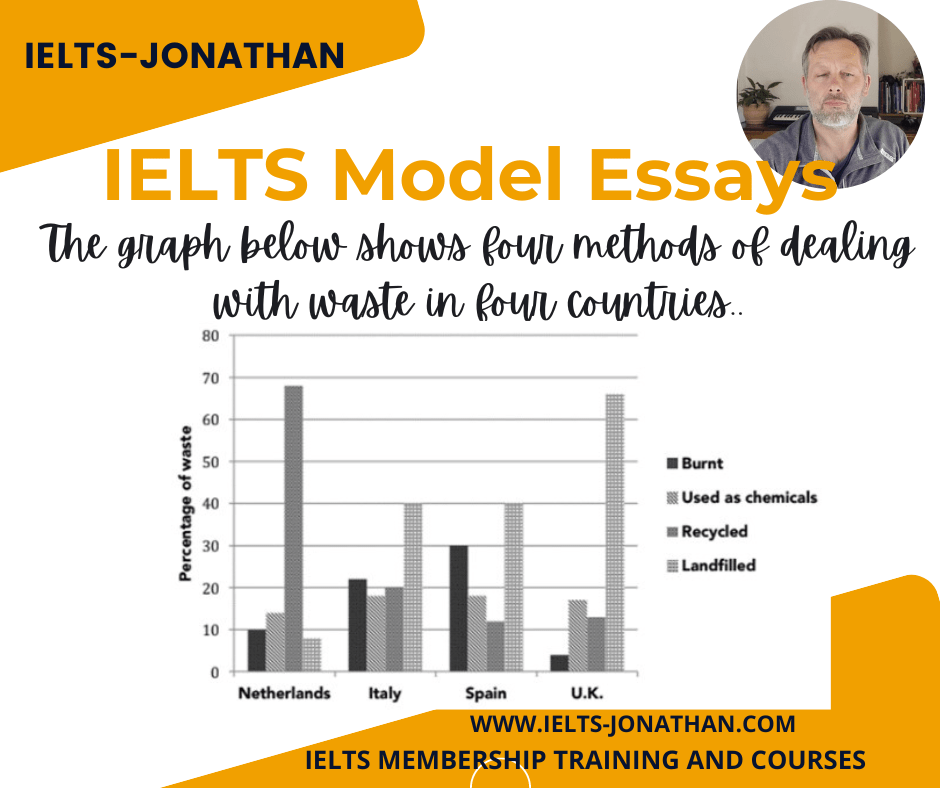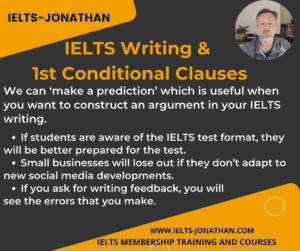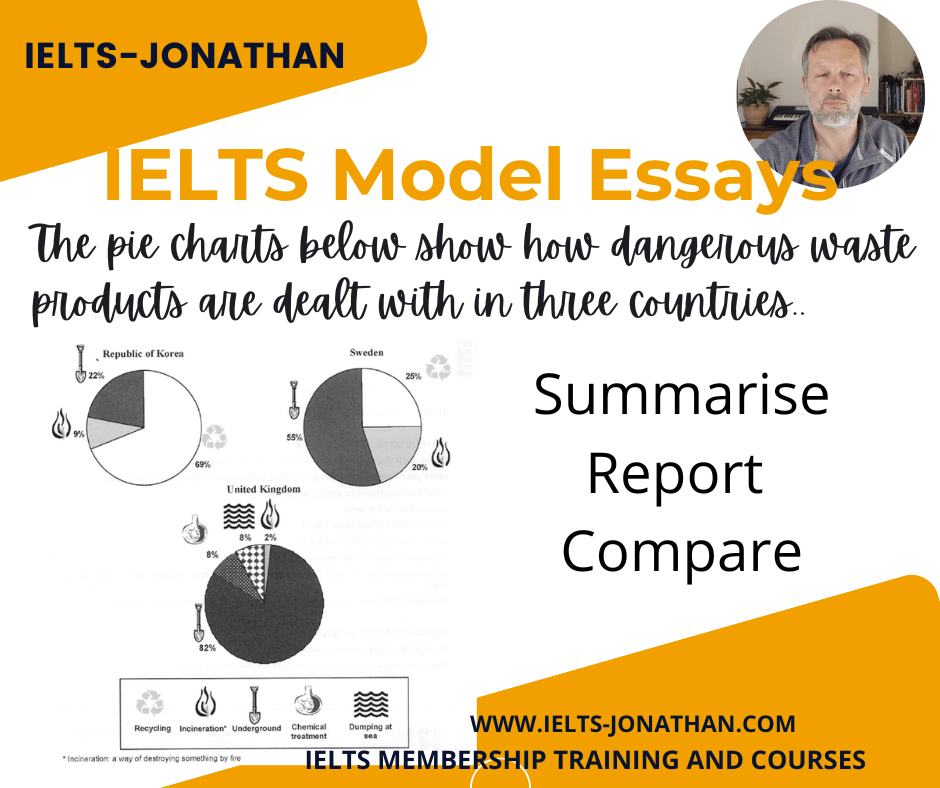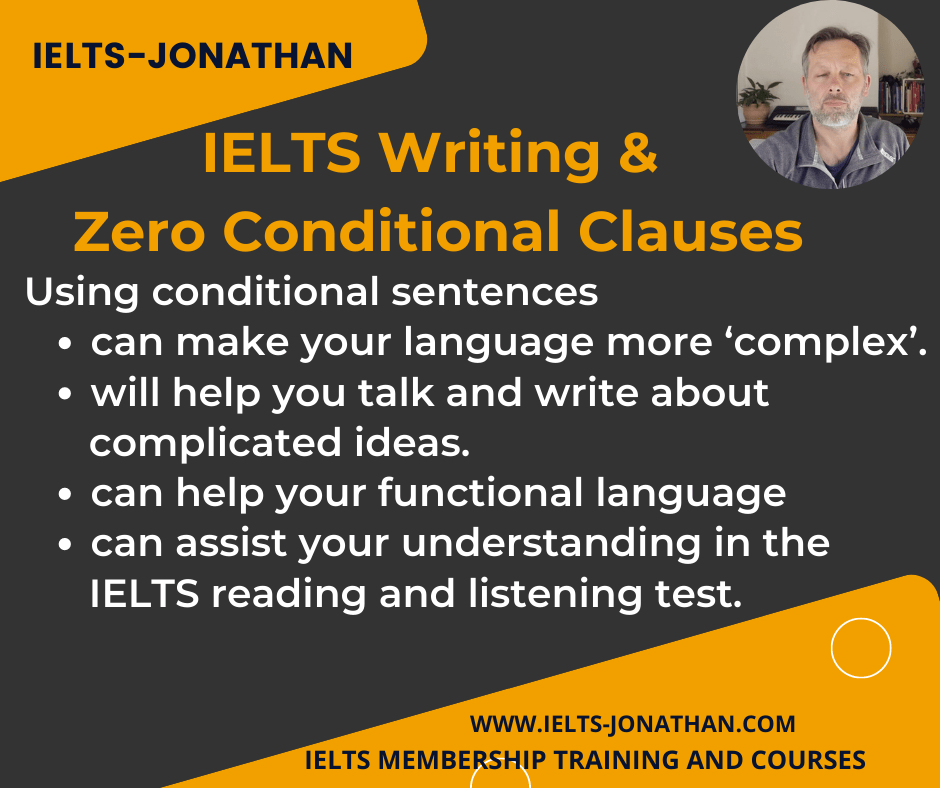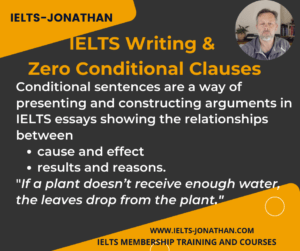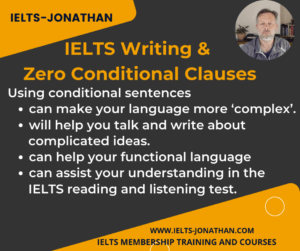How conditional sentences are important in IELTS
Understanding and using conditional sentences will make your language more ‘complex’ and will allow you to talk and write about more complicated ideas.
As you understand the possible meanings and functions of conditional sentences, it will also help your understanding in the IELTS reading and listening test.
In this lesson, we will go through the basic meaning and grammatical construction of Third Conditionals with examples and a chance to practice what you know.
The good news is that although learning the concept of English conditionals might not always be easy, once you have mastered it, it is not easily forgotten. 🙂
Conditionals – The Basics
Conditional sentences are always made up of two parts or two clauses; these are just different names for the same thing.
There is always a condition and a result.
If the Soviets had not initiated a space race, would man have visited the moon?
Here’s an example:
If + clause (condition) + clause (result)
or
Clause (result) + if + clause (condition)
The 3rd conditional is used to talk about ‘unreal’ conditions.
They are ‘unreal’ because they speculate or suggest what would have happened if the conditions in the past were different to what they really were.
This means they are quite useful if you want to suggest an alternative viewpoint.
Here are some examples:
If I had understood the question, I would have given a different answer.
If governments had invested more in electric car technology in the 1890s, society would not have been so dependent on oil.
The past perfect expresses the imaginary condition and the would have and past participle expresses the result of that condition.
How the 3rd conditional is formed
A 3rd conditional sentence is formed in this way:
If + Condition + Result
Another way of putting this is:
if + past perfect + would have + past participle
You can also change the order of the sentence:
Result + If + Condition
For instance these sentences are reversed but they retain the same meaning.
If he hard worked harder at school, he would have got better results.
→ He would have got better results if he had worked harder at school
As you can see from the second example, there is no comma in this construction.
He would have got better results if he had worked harder at school.
Ways of using the 3rd Conditional
One way of using them is to ‘ask about’ or to ‘speculate’ in the form of advice or a warning or providing an alternative..
This is useful when you want to construct an argument in your IELTS writing.
If students had been aware of the IELTS test format, they would have been better prepared for the test.
Further ways of constructing the 3rd Conditional
Modal Verbs
With the third conditional we can also use other modal verbs in place of ‘would have’, e.g. ‘could have’, ‘should have’, or ‘might have’.
Examples:
If I had seen her at the meeting, I would have asked her. (But she wasn’t there so I didn’t.)
If I had seen her at the meeting, I could have asked her. (But she wasn’t there so it wasn’t possible.)
If I had seen her at the meeting, I might have asked her. (But I’m not sure. Perhaps if the opportunity had arisen.)
If governments had invested more in electric car technology in the 1890s, society might not have been so dependent on oil. (We have always been dependent on oil)
Conclusion
Remember that we can ‘speculate’ using the 3rd conditional.
Using a modal verb can subtly change the meaning of the sentence but the overall message is about ‘impossibility’.
The situation is in the past and we cannot change what has already happened
Try the following exercises to test yourself, but think carefully about what the sentence is expressing.
IELTS Writing activity with Conditional Sentences
| Complete the 3rd conditional sentences by selecting the correct option.
1.) l wouldn’t have told you if I have/had known that you would get upset. 2.) I would have/would not have recognized you if somebody hadn’t told me who you were. 3.) I would had/have forgotten all about it if you hadn’t reminded me. 4.) If I’d left the house on time, I would have/ would not have missed the train. 5.) I wouldn’t have bought this if I had /have known it only has a 1-month guarantee. |
If you need to study conditionals further, the British Council have lots of activities on using English conditionals and you can test yourself here. 🙂
Answers
- l wouldn’t have told you if I had known that you would get upset.
- I would not have recognized you if somebody hadn’t told me who you were.
- I would have forgotten all about it if you hadn’t reminded me.
- If I’d left the house on time, I would not have missed the train.
- I wouldn’t have bought this if I had known it only has a 1-month guarantee.
Aspects adapted from Perfect English Grammar
I’m Jonathan, an online-IELTS preparation specialist.
I help IELTS students achieve the IELTS score they need with courses, training, feedback and advice.
I have taught IELTS and University English in more than a dozen universities and schools around the world.
I’m a parent, traveller and passionate about language teaching and helping students achieve their dreams.
Whilst living in Austria or working in Asia, I run IELTS courses to help students get to where they want to be.
If you are serious about IELTS, connect with me to see how I can help you.

